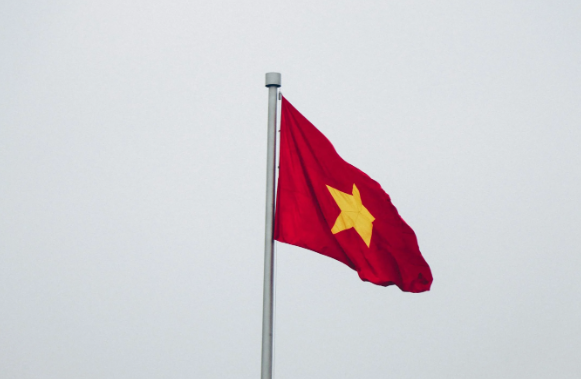Is Vietnam the new China? Vietnam’s Rise as EU's New Investment Hub Amid China's Decline
By: Gabriel Panza
Reading time: 4.3 minutes
European firms are rethinking their strategies in Asia, and Vietnam is swiftly becoming the region’s hottest investment location. China, the once global manufacturing powerhouse, has started to lose its shine due to rising costs, political tensions, and limiting policies, leaving firms wondering if they should relocate. Enter Vietnam. This industrial flourishing Southeast Asian nation is becoming a serious contender, offering stability, attractive investment costs, and game-changing trade agreements. Hence it is only natural that EU companies have quickly registered investments with Vietnam, increasing by 69.6% in just the first eight months of 2022.
What are the reasons behind this shift? This article will address why Vietnam is becoming the top choice for EU companies and why China is falling out of favor.
Reason 1: China is less favourable
China’s reputation as a manufacturing and investment hub has suffered in recent years due to various factors. Rising costs in annual wages more than doubled between 2010 to 2020, causing less attraction for cost-sensitive industries. Moreover, the Zero-Covid policy caused lockdowns in economic hubs like Shanghai and Beijing. This disrupted supply chains and economic activity, thereby shaking future investor confidence. In fact, European business confidence in China has recently hit an all-time low, with two-thirds of surveyed companies reporting below-average profit margins. This may be caused from trade tensions rooted in escalating disputes between China and the EU over tariffs and anti-dumping investigations. Erratic shifts in Chinese policies and high-cost businesses developments in China have led to many firms relocating their offices in lower cost countries. Where are these countries relocating? Vietnam has emerged as a top choice.
Reason 2: Vietnam is a better investment destination
Since the 1990s, Vietnam has cemented its position as an attractive investment pole for EU companies, arguably more than China in recent years. This is attributable to various economic and political factors. Firstly, Vietnam has low wages, a large young workforce, and a thriving middle class, making it ideal for labour-intensive industries. Moreover, the EU and Vietnam have concluded various trade agreements like the EVFTA, which eliminated tariffs and trade barriers, and the EVIPA which increased foreign shareholding access. In fact, the EVFTA has boosted bilateral trade from €20.8 billion to €49 billion in 2021 alone. Scholars argue that EU investments in Vietnam align with ethical standards for workers’ rights and environmental protection, making it a more sustainable choice than China. Lastly, Vietnam’s government heavily invests in maintaining public infrastructure and offers abundant natural resources. This allows European firms an opportunity to start businesses in extraction industries. All these factors solidified Vietnam as a key player for EU and eastern trade.
Is China Still Essential?
While Vietnam’s growth is undeniable, China remains important in many areas for the EU. China’s high-value manufacturing and robust supply chains make it an essential business partner to the EU. In addition, instead of replacing China, Vietnam can serve as a complementary investment location for lower-margin manufacturing. Currently, many German corporations are dependent on China, which makes decoupling from the country more difficult. Vietnam may not fully replace China, but its location in Asia’s manufacturing landscape will spell competition between the two countries as future providers of Europe’s manufacturing.
Overall, China faces rising costs, policy issues, and strained relations with the EU, which gives Vietnam the opportunity to emerge as a compelling alternative. With its offer for lower costs, strategic trade agreements, and favourable workforce, Vietnam positions itself as a key player in EU trade.
